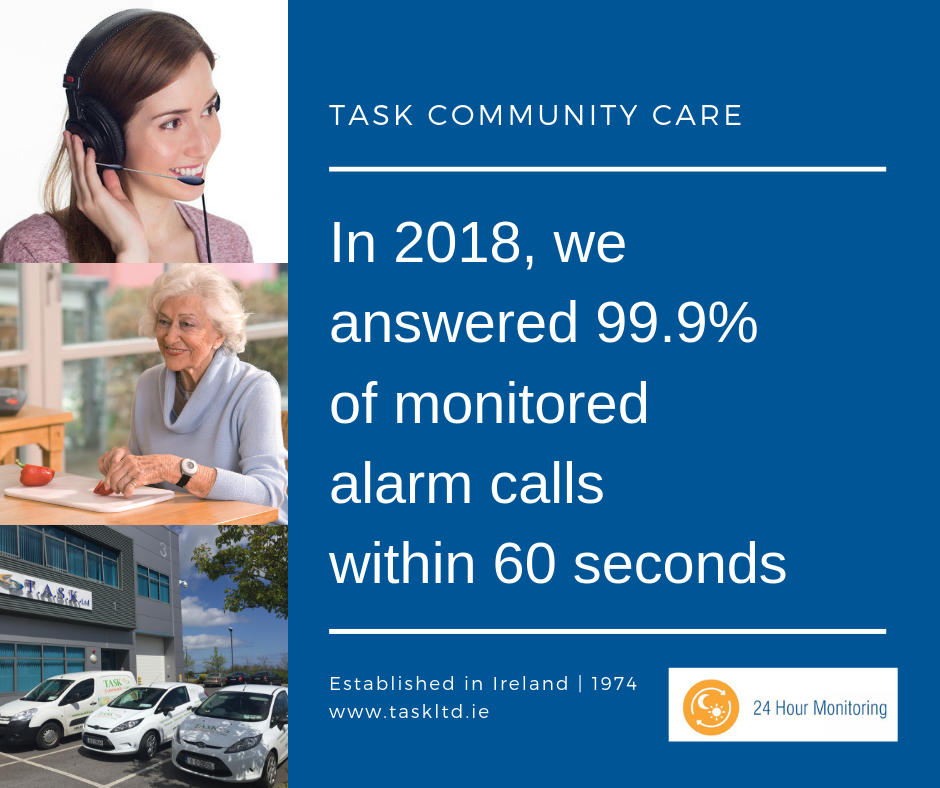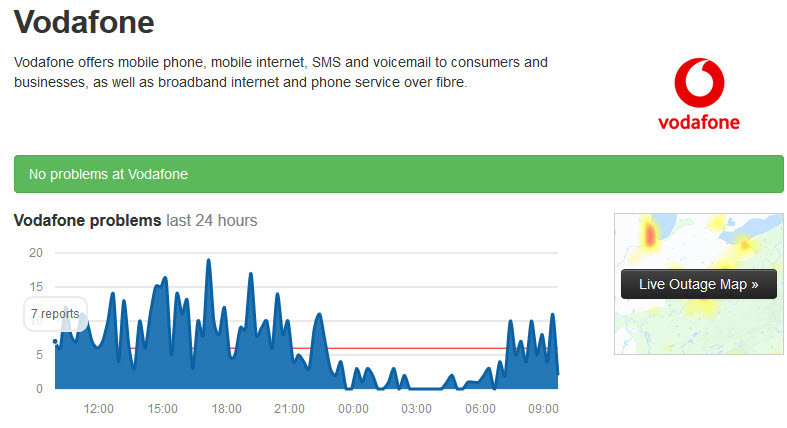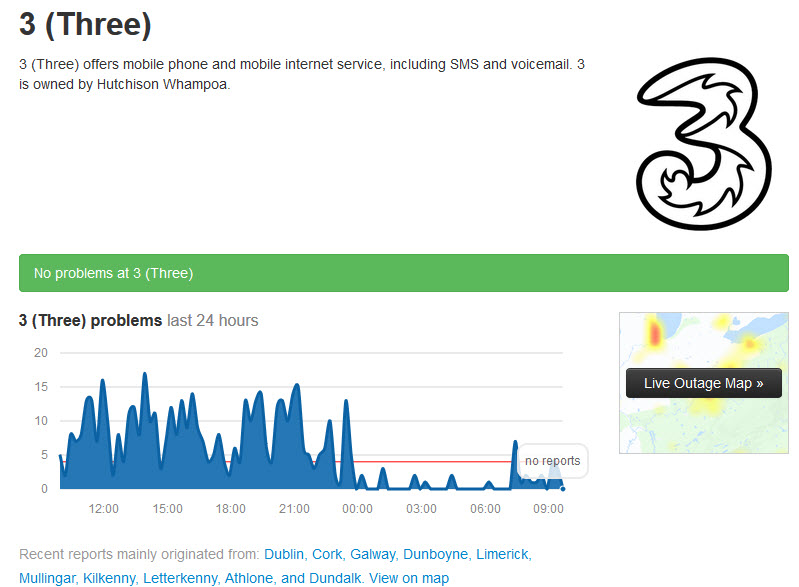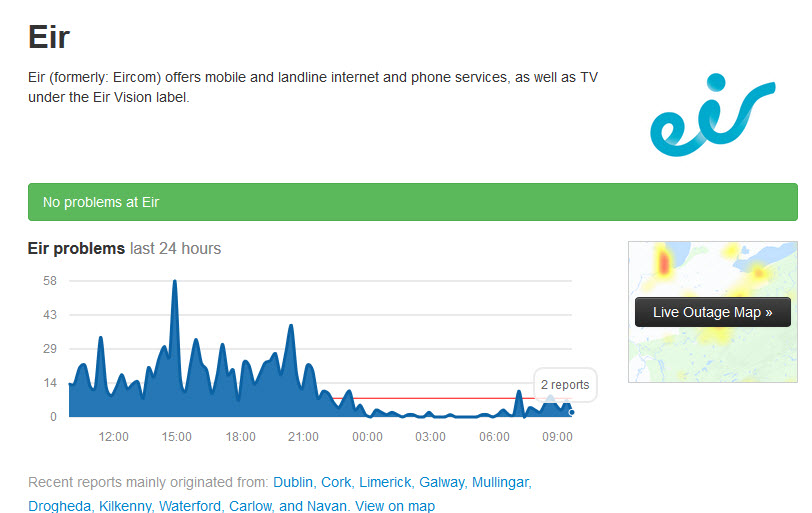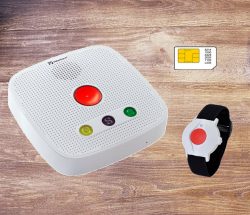
Personal alarms for homes with no phone lines (GSM alarms) are now available in Ireland. If you’re one of the increasing number of people, who has dropped your landline services, this means you can still have peace of mind in an emergency.
As with landline telecare systems, GSM alarms can access 24-hour help for you. The main difference is that these alarms use a SIM card in place of your phone-line.
How do GSM alarms work?
#1 You press the emergency call button on your personal alarm
#2 Your call connects to call handlers, in a 24 hour response centre (via SIM)
#3 If you need assistance, call handlers will contact keyholders or the emergency services
Most GSM personal alarms are dispatched with the SIM already installed. Often, all you will need to do, is plug your GSM alarm into an electrical socket, and carry out a test call.
Does the GSM alarm need a specific type of SIM card?
There are three mobile providers in Ireland: Three Ireland, eirMobile and Vodafone Ireland. All other providers operate off one of these main networks. While a SIM card from one of these single providers can be suitable for your mobile phone, with a personal alarm you’ll want a back-up if one network goes down. For this reason, it’s recommended to use a different type of SIM card, called a ‘multi-network SIM’ (also sometimes called a roaming SIM). Otherwise, during an outage your call may not get through.
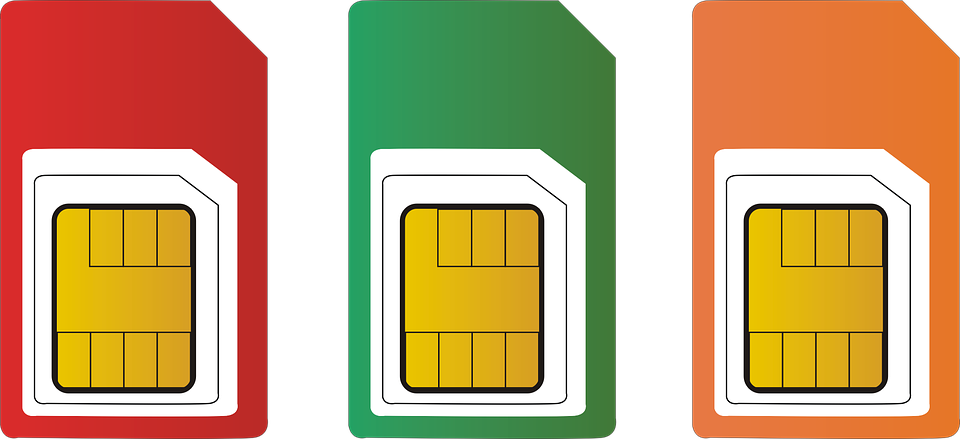
If a single network SIM is used & the network is down, the emergency button will not work. Always choose a multi-network SIM for your personal alarm, to attach to the strongest network in your local area
A multi-network SIM attaches to the strongest available network. In Ireland, this triples the likelihood of your emergency call connecting for help, when you need it most. Network outages can occur for various reasons, such as call congestion (too many calls on one network at the same time) systems failures or storm damage. If you’re in any doubt about the likelihood of an outage on one of the three Irish networks, check out Downdetector.ie which lists recently reported outages and issues.
How much does a multi-network SIM cost?
In Ireland, personal alarms, including GSM alarms, are funded under the Seniors Alert Scheme for over 65s. That includes the 24-hour monitoring for your first year. You’ll only have to pay for the SIM contract (usually around £5 per month).
If you’re not eligible for funding, or need urgent delivery of your personal alarm, you can also purchase your alarm directly through a telecare company, such as our Sponsor, TASK Community Care. TASK also provides personal alarms including GSM alarms under the government grant funded scheme.
TASK uses only multi-network SIMs in their GSM alarms. The alarms are dispatched with the SIM card installed, unless you opt otherwise. Once you purchse the GSM alarm, 24-hour monitoring is €66 yearly, and the SIM contract is €72 yearly (€5 per month). The SIM comes with unlimited call credit for all your panic alarm activations. This means that with TASK, you’ll never have to worry about any unexpected call charges from your GSM personal alarm.
Update 09 August 2019: An earlier version of this post incorrectly stated that the cost of the SIM contract was included in the Seniors Alert Scheme grant. This has now been amended as regards funding available for Seniors Alert GSM personal alarms.
ADVERTISEMENT
